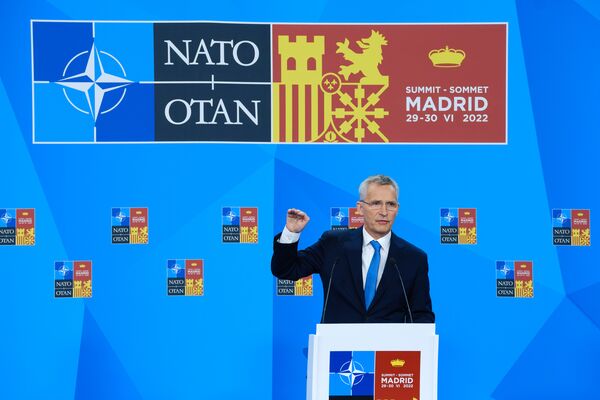
NATO Secretary General Jens Stoltenberg told journalists on 29 June that Ukraine could count on NATO members to continue to provide it with military and financial aid. (NATO)
With allied leaders agreeing, during the June 29–30 Madrid summit, to massively ramp-up the defence of NATO's home territory against external aggression, attention will now turn to how effectively the alliance can deliver assistance to its partner countries, particularly Ukraine, to shore up their security via NATO's newly reformed multination Trust Funds (TFs).
The timing of the TFs' reform – hammered out during the previous 18 months – could not come sooner, and Ukraine will be an obvious acid test. As NATO Secretary General Jens Stoltenberg announced during a press conference on the first day of the summit, “Ukraine can count on us for as long as it takes. Allies will continue to provide major military and financial help.”
At their summit, the allies approved an expanded comprehensive assistance package (CAP) of non-lethal defensive aid for Kyiv to include secure communications and enhanced mobile satellite kits; counter-unmanned aerial systems; counter-chemical, biological, radiological, and nuclear capabilities; night vision goggles; ballistic protection vests and helmets; and help reconstructing Ukraine's military infrastructure. Lethal kits will continue to be provided bilaterally between the allies and Ukraine.
The allies also announced stronger TF assistance programmes for Georgia, Moldova, and Bosnia-Herzegovina, as well as a first-time security capability package for Mauritania to cover co-operation in border security, counter-terrorism, special operations, maritime security, and intelligence.
Based on donor activities such as training, demining, and equipment donations, the TFs are launched and financed by voluntary groups of allies. Around 15 TFs have been running since 2014, but they have delivered far below what was expected.
Looking to read the full article?
Gain unlimited access to Janes news and more...







